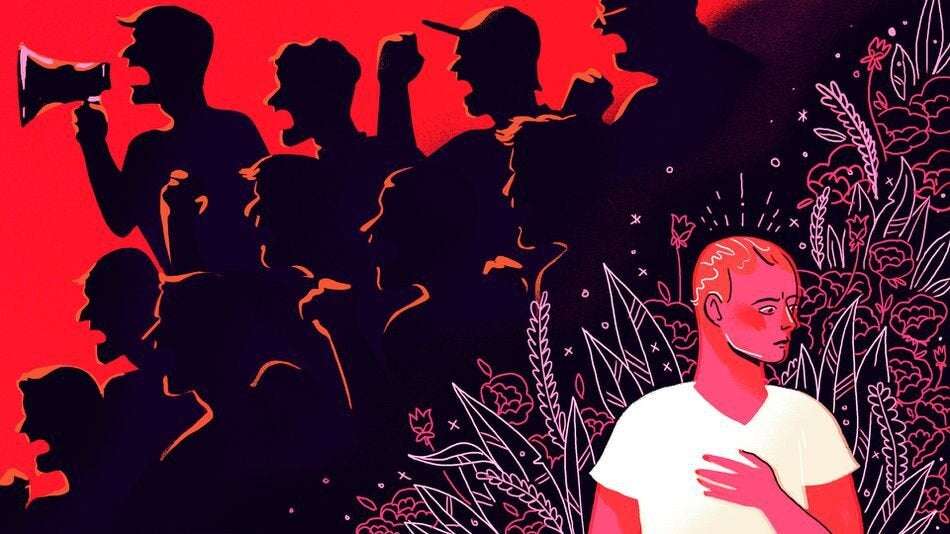The researchers performed a series of experiments to test their hypothesis. They began by examining whether education level plays a role in male gun owners’ responses to thwarted goals. They recruited 403 male U.S. gun owners and divided them into a failure condition and a control condition.
Participants in the control condition were given an easy puzzle, while those in the failure condition were given a puzzle that was impossible to complete. The participants were also informed that the puzzle was a test of their cognitive ability which was linked to their intellectual capacity and career potential.
The results of this experiment showed that goal thwarting (i.e. not being able to complete the puzzle) led to more positive attitudes about guns if the individual had a lower education level and was a defensive gun owner.
For the next experiment, the researchers were curious how gun culture and masculinity culture promote the use of guns to assert power and dominance. Male handgun owners were asked to complete a shooter simulation task that required them to shoot armed targets and avoid shooting unarmed targets.
The researchers also documented whether participants felt they’d face job termination in the next 12 months. Job termination was used as a measure for goal-thwarting. Additionally, participants were given a questionnaire to assess how much they ascribed to masculinity culture. For example, they were asked how much they agreed or disagreed that “it’s a man’s responsibility to protect his family”.
The researchers found that participants were more likely to shoot unarmed targets when they faced possible job termination, had a lower education and supported the norms of masculinity culture. Since masculinity culture promotes violence, these participants appeared to comply with the social norms of their network.
In the following experiment, the researchers wanted to show that higher education doesn’t represent immunity to thwarted goals. The recruited college graduates and asked them to complete a scrambled word task that primed half of them with an achievement goal. After which, all of them were given a difficult task that led to a failure experience.
Immediately after this, participants were presented with a text that described the atrocities of the Syrian civil war and the battle against ISIS. The participants were then told that U.S. military intervention was generally supported by college graduates but not by non-graduates.
The outcome of this experiment revealed that thwarted goals made the participants comply with the perceived norms of their social network. Since the norms of those with a higher education typically lean towards nonviolence, the college graduates in this experiment also endorsed non-violent acts.
They also shifted their self-reported values to align with the perceived norms. Thus, those with a higher education appear to be just as likely to comply with social norms when their goals are blocked.
In sum, the researchers found that a tendency towards violence is more likely to occur amongst goal-thwarted individuals whose social networks encourage violence. This supports the frustration-affirmation model which proposes that frustration (due to blocked goals) drives people to satisfy their unfulfilled psychological need by complying with the norms of their social network.
Whether someone behaves violently or non-violently depends on the values that their network promotes. Lastly, lower education level and masculinity culture also interact to increase the tendency towards violence.

Techbcs on August 30th, 2020 at 21:35 UTC »
For example, they were asked how much they agreed or disagreed that “it’s a man’s responsibility to protect his family”.
— Is any man going to disagree with this? Ask mothers if “it’s a woman’s responsibility to protect her family” and see what they say.
ulyssessword on August 30th, 2020 at 18:41 UTC »
Paragraph 1:
Paragraph 2:
Is there some subtle difference between "thwarted" and "threatened or blocked" that would explain the opposite reaction?
ferrelhadley on August 30th, 2020 at 17:34 UTC »
https://www.behaviorist.biz/oh-behave-a-blog/frustration-aggression
I have very serious reservations about this study the way it was described.
You could have asked them about capital punishment, immigration control or other issues here. Its like you were fishing for a response about guns.
You could have given them a car driving game to see if under personal duress they were likely to transgress norms in a game. You could have given them a card game where they had the option to cheat. I am really uncomfortable that this again is a fishing expedition for a flashy title to their study.
They could easily be finding pretty normal behaviours of humans and now trying to tie it to "masculine culture" and "gun ownership".
This is now a different test, for those who are educated.
"We read a story about the Holocaust to some Jewish people and their behaviours changed".
Again I think their are likely to be a host of confounding variables over peoples reactions here. For example those with a tertiary education may feel the intervention is high risk and be less risk taking when primed with what they perceive to be a very messy war, those from other social backgrounds may have different expectations and risk perception with this.
Wait, peoples behaviour is influenced by social norms?
Reddit is general to the left and in large sections far left of US society as is academia. There is a lot of legitimate research to be done into American social and cultural attitudes and how we can improve them to reduce the harms done in society and enhance the lived experience of Americans. But many of these studies seem more akin to push polling and independent research.